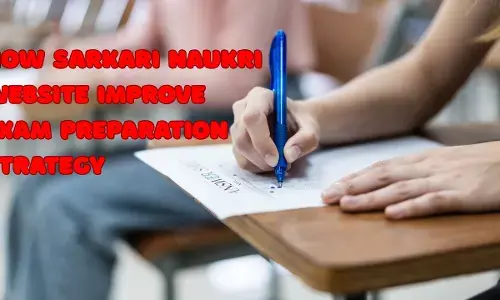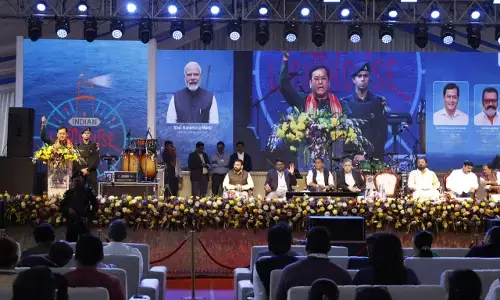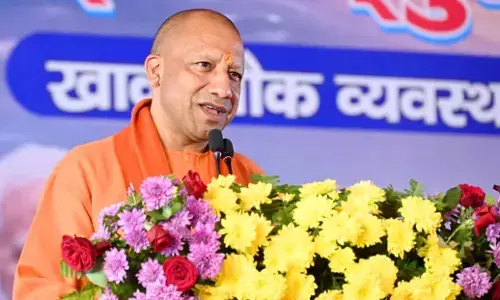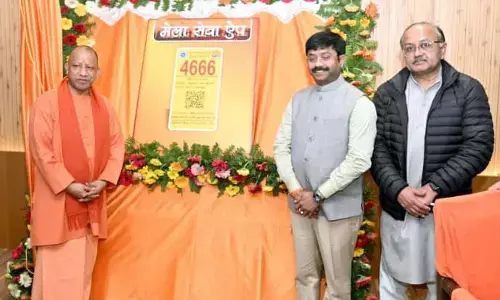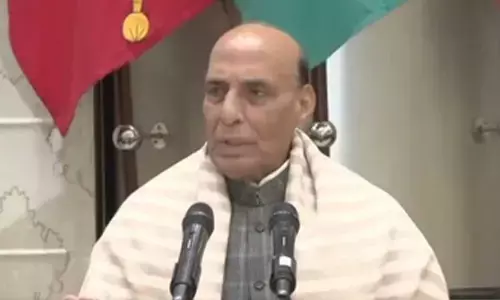Lawyers as catalysts for establishing the rule of law
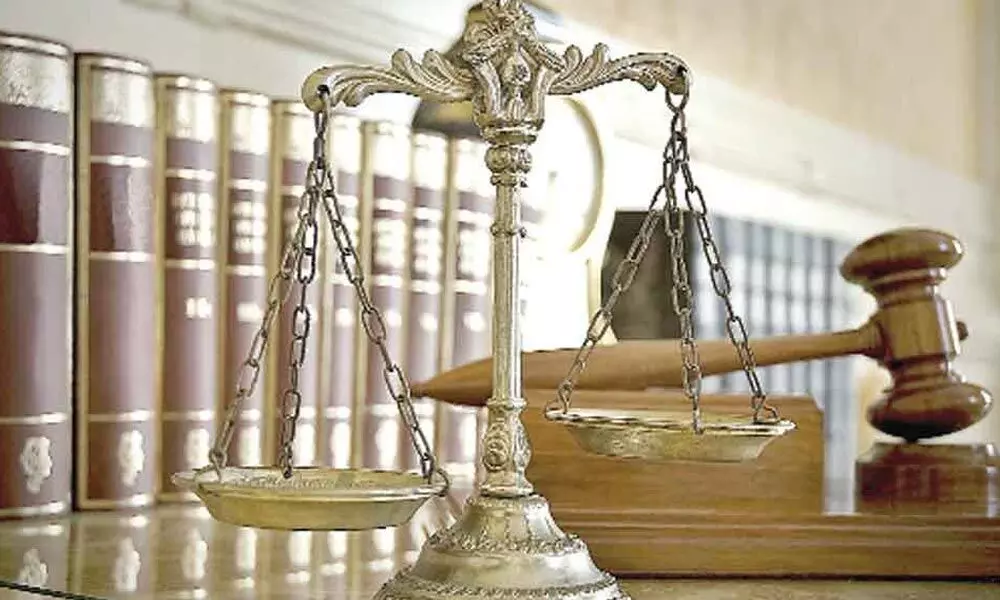
Anarchism at its best to destroy our democracy!
On December 3, the nation celebrated 'Advocates Day' to mark the birth anniversary of the first President of India, Dr Rajendra Prasad, who was an eminent lawyer.
On December 3, the nation celebrated 'Advocates Day' to mark the birth anniversary of the first President of India, Dr Rajendra Prasad, who was an eminent lawyer. Like Dr Rajendra Prasad, the freedom movement had attracted a number of leading lawyers, including Mahatma Gandhi, Jawaharlal Nehru, Mohmmed Ali Jinnah, Sardar Vallabhbhai Patel and his brother Vithalbhai Patel, KM Munshi, C Rajagopalachari, Lala Lajpat Rai, Madan Mohan Malaviya, Motilal Nehru, Chittaranjan Das etc; to name a few. Their contribution to the freedom movement is invaluable.
Today, after 74 years of achieving the independence, the idealistic politics has taken a complete U-turn. The commitment to the nation has taken a backseat and the elective bodies are largely occupied by people with criminal records. Following the footsteps of political leaders, people from all walks of life are immersed in corruption, nepotism and vices of all kinds.
Unfortunately, this sorry state of affairs has also infested the sphere of professionalism. Consequently, the professions such as doctors, teachers, lawyers etc., have off late, been inhabited by the incompetent, dishonest and self-serving people. Because of such black sheep, the respective profession as a whole gets a bad name.
Gone are the days when professionals adhered to the vow taken at the time of entering into the profession that they would dedicate their life in the service of the society in general and underprivileged in particular. Today, the general perception about the profession of advocacy has reached the ebb so much so that it has become very difficult for an advocate to get a house on rent or avail the bank loan because the house owners and bankers have become apprehensive about the real intensions of advocates. Similarly, there are umpteen instances of malpractices and unethical behaviour by the advocates.
It is strange that though an advocate is described as an 'officer' of a court and being so, he is saddled with a duty to assist the court in the dispensation of justice, this designation is just a misnomer. The so called officer hardly gets any respect from the ministerial staff of the court or any remuneration or honorarium for such a designation. True, today the legal profession is overcrowded with half-baked lawyers whose main source of motivation for entering into the legal profession is 'films'. The far from the truth picturisation of lawyers in movies attract the adolescents to law colleges; most of which are ill-equipped in terms of infrastructure and faculty. These colleges churn out LLB graduates on a large scale, and the rest is we all know.
Though there are a few exceptions to such a sordid state of affairs like the law universities, the general atmosphere has been frightening. Unless urgent remedial measures are devised and enforced vigorously, the striking of legal catastrophe cannot be avoided.
SC on credible evidence
The Supreme Court in Gulab Vs. State of Uttar Pradesh case had recently held that non-recovery of weapon of offence would not discredit the case of the prosecution which relies on cogent direct evidence. The failure to produce a report by a ballistic expert, who can testify the nature and cause of injury, is not sufficient to impeach the credible direct evidence, the apex court added.
While dismissing an appeal filed by an accused challenging the order of Allahabad High Court affirming his conviction under Section 302 read with Section 34 of the Indian Penal Code and sentence of life imprisonment, a Bench comprising Justice DY Chandrachud, Justice AS Bopanna and Justice Vikram Nath further observed that the mere fact that all the three witnesses in the case were related to the diseased was no reason to discredit their otherwise coherent testimony.
Delhi HC on 'proclaimed offender'
The procedure prescribed under Section 82(1) of Criminal Procedure Code has to be followed by a court before declaring a person as 'proclaimed person' or 'proclaimed offender', said Justice Manoj Kumar Ohri of the Delhi High Court, while allowing an appeal in Mohd Haris Usmani Vs. The State, recently.
Quoting Section 82(4) of CrPC, the court held: "On a perusal of Section 82(4) CrPC, it is observed that the use of the expression 'after making such inquiry as it thinks fit' implies that at the time of pronouncing a person as 'proclaimed person' or 'proclaimed offender', the concerned court has to satisfy itself that the steps indicated in Section 82(1) CrPC are scrupulously followed. The court is required to record reasons either after taking evidence or without evidence that the person against whom warrant was issued has absconded or concealed himself so that such warrant cannot be executed."
In this case, an FIR was registered at the Kalkaji police station against Mohd Haris Usmani under several sections of IPC, including for offences of rape, criminal intimidation and breach of trust. Based on a police report which stated that the police had made a search for the petitioner and when he was not available at the given address, the duty Magistrate after recording the police statement, declared the petitioner as absconder.
Citing lockdown due to Covid-19 pandemic and 15-day home isolation for his absence, the petitioner sought a reprieve from the High Court. The High Court observed as under : "It is worthwhile also to note that the issuance of process under Section 82 CrPC and pronouncing a person as 'proclaimed person' or 'proclaimed offender' entails serious consequences, including not only deprivation of personal liberty of a person, but also attachment of properties and initiation of proceedings under Section 174 A of IPC against such person. No judicial order is complete without reasons and it is expected that every court, which passes an order, should give reasons for the same."
TS HC on punctuality of court working
The High Court of Telangana in a recent directive to all judicial officers and heads of the subordinate courts in the State has directed that they should ensure punctuality in the working of courts from 10.30 am to 5 pm with half-an-hour lunch period from 2 pm to 2.30 pm on all working days.









